The Women and Equalities Select Committee have just published another report into the Reform of the Gender Recognition Act. The inquiry was launched in October 2020, and written submissions were collected over a year ago. Oral evidence was heard in the early part of this year, but the committee waited until four days before Christmas – in the midst of another Covid storm – to share their findings.
Whether they were trying to bury the news or not, this committee is not of one mind. During the committee meeting on 15 December 2021 they divided eleven times.
But why should anyone care? Transsexuals were once a vanishingly small number of people who wanted to vanish back into society. But we now live in different times where gender identity ideology is taken very seriously by politicians. The idea is simple – we all have a gender identity that alone determines whether we are women, men or perhaps something else – but the consequences on society are profound. Gender identity displaces biological sex as the means of dividing humanity.
Gender identity might not yet be enshrined in legislation – at least in the UK – but that has not dampened the enthusiasm of policy-makers trying to get ahead of the law. They have ignored biological reality and dismantled safeguards that protected women.
Gender identity might not be on the table at Westminster, but self-declaration is a live issue.
As a result, male people are levering their way into parts of society women once thought were theirs. For example, Mridul Wadhwa – a transwoman – was appointed chief executive of Edinburgh Rape Crisis, a job that was advertised as reserved for a woman. Another male, Lia Thomas, is currently smashing women’s swimming records.
Gender identity might not be on the table at Westminster, but self-declaration is a live issue. Since it would enable anyone to choose their legal sex, without providing even a shred of objective evidence, it would have much the same effect.
It is not only women who lose out. If male and female become labels of choice, what does it mean to be gay or lesbian? Homosexuality is surely something more than an attraction to someone who chooses to identify with the same gender.
But none of this was mentioned in the key recommendation in the report:
“We believe that the requirement of a diagnosis of gender dysphoria in order to obtain a Gender Recognition Certificate should be removed from the Gender Recognition Act, moving the process closer to a system of self-declaration.”
With the stroke of a pen, a select committee recommended sweeping away the checks and balances that underpinned not only the process but – crucially for me as a transsexual – confidence in the process. If anyone can declare themselves to be whatever they like, the powerful win over the vulnerable. As Lewis Carroll once wrote, “
“When I use a word,’ Humpty Dumpty said in rather a scornful tone, ‘it means just what I choose it to mean — neither more nor less.’
’The question is,’ said Alice, ‘whether you can make words mean so many different things.’
’The question is,’ said Humpty Dumpty, ‘which is to be master — that’s all.”
The scope for misbehaviour is obvious. If male sex offenders want access to women, they can simply identity as women? The protection proposed by the committee, however, was laughably naïve,
“The requirement for an applicant legally transitioning to complete a statutory declaration is an essential safeguard which ensures that they are doing so with genuine intent.”
Maybe the committee realised that trusting to luck was not a solution? The report added,
“It would also be possible to police statutory declarations more strictly, and to bring prosecutions for fraudulent declarations if it becomes apparent that the person had no real intention of living in the acquired gender.”
As someone who has been accused of not being really trans because I do not deny my biological sex, that sentence worries me. Whoever decides what it means to live in the acquired gender controls how every transsexual can live their life.
The minutes from 15 December suggested that two committee members – Jackie Doyle-Price and Philip Davies – do care, and they are willing to and be counted.
On sports, the committee suggested that the Equality and Human Rights Commission and the Government Equalities Office, “must work with trans rights groups and sports providers.” Women’s groups were not mentioned.
It might be called the Women and Equalities Committee, with a female chair indeed, but the report seems to care little about the needs of women, gay and lesbian people, and – indeed – transsexuals like me.
The minutes from 15 December suggested that two committee members – Jackie Doyle-Price and Philip Davies – do care, and they are willing to stand up and be counted. When the committee divided Doyle-Price and Davies called for safeguards to be retained, but they were outvoted every time.
The government have two months to respond. Liz Truss – the minister for Women and Equalities – needs to put file this piece of magical thinking alongside the works of Carroll.
Debbie Hayton is a transgender teacher and journalist.



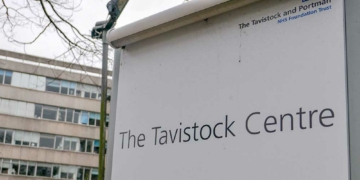
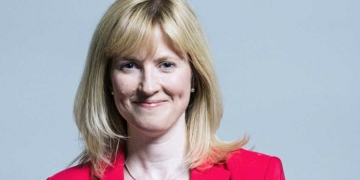
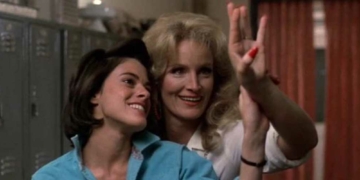










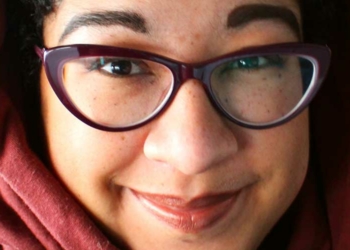

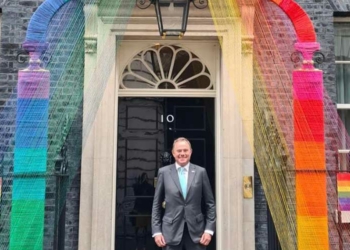





Comments
No comments yet, be the first to leave a comment.